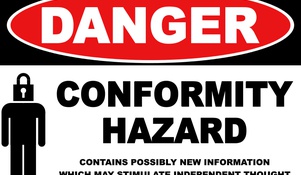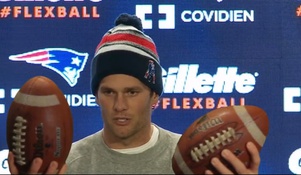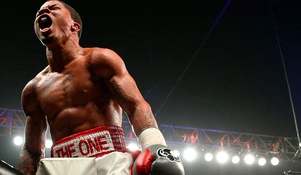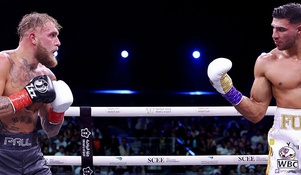The Mayweather-Pacquiao moral dilemma and a philosophical look at ethics and the fine line between admiration and ostracism in sports

With the biggest fight in recent boxing history coming up in Vegas this weekend, many respectable voices are calling for a boycott of the fight. Most notably, Sarah Spain of ESPNW and Keith Olbermann, of the mother network, have made their respective cases for why they believe it to be, at least morally questionable to watch this fight. Others, such as Dan LeBatard have called this position grandstanding while others simply separate sports from ethics altogether and choose not to ask the tough questions.
Floyd Mayweather is not a good dude. The flaunting, the brash behavior, controversial behavior in the ring and off it, are not the focus – the five domestic violence convictions and two more incidents is the real issue. Domestic violence has become an important issue in sports in recent months, especially in America. The Ray Rice incident and the utter incompetence of Roger Godell that followed brought the issue to the forefront and the NFL is still steeped in the domestic violence controversy enough for Olbermann to boycott the NFL draft this weekend as well. Another recent, public incident involving porn star Christy Mack and MMA fighter Jon Koppenhaver, also known as War Machine, exemplifies the brutal nature of this crime.
There is a strong contingent of sports fans who already ignored this article because they separate their sports from their morality altogether, separate the art from the artist, and claim they don't need their athletes to be good people. And that's a fair stance, but here's why it is different. If you live in the US, you have to pay a lump sum of money directly to Floyd Mayweather. Not only is the fight the most expensive pay-per-view fight in boxing history, Floyd famously runs his entire operation essentially himself, pockets virtually 100% of his earnings, and makes sure you know about just how rich he is. Thus, by making a choice to watch this fight, Americans are making a decision to put money directly into the pocket of a man who is convicted of multiple counts of domestic violence and is completely unapologetic about it.
I believe it is good to try to find suitable and enlightened rules to guide your actions when it comes to morality. As an ethical-intuitionist, I believe it to be an immensely better solution to making choices in life than relinquishing that decision-making power to the government, religious institutions, or the rest of an ultra-conformist society.
Immanuel Kant's first categorical imperative often helps:
“Act only according to that maxim whereby you can at the same time will that it should become a universal law without contradiction.”
This comes close to what we commonly call the golden rule. In our very specific example the first formulation of the German philosopher's imperative is of relatively little help as I think most of us would not object to the idea that people can choose to watch athletes perform their craft even is they have a past of criminality.
Thus the second formulation of the categorical imperative comes in handy.
“Act in such a way that you treat humanity, whether in your own person or in the person of any other, never merely as a means to an end, but always at the same time as an end.”
Lets let that one sink in. Because if we do treat humanity in the way Kant urges us to, many of us will come to the conclusion that we shouldn't watch this fight. Treat humanity as an end and not the means he says. If we do that, we should presumably deny ourselves the entertainment value of the event if we feel that we are, in any way, empowering an individual who we believe to be bad for society.
It is also crucial to underline the unique nature of the crime of domestic violence. I would not be writing this if Mayweather had been involved in assaults against men, gangs, drugs or anything else. This matters because this crime is a particular thorn in the sides of many societies. This crime is worryingly silent, often unnoticed, often the very victim in the case will be the first to stand up, wipe the blood off her face, and defend her “man” wholeheartedly. Moreover in the cases of Floyd and War Hammer the male involved is an actual professional fighter. It's a crime where societal involvement matter more than in other cases.
When I pondered this issues I adapted Peter Singler's argument he uses to discuss world poverty to help myself navigate through the situation:
If we can prevent something bad without sacrificing anything of comparable significance, we ought to do it; domestic violence is bad; therefore IF there is some domestic violence we can prevent without sacrificing anything of comparable moral significance; we ought to do it.
The question then becomes: can you prevent any domestic violence by skipping the fight this weekend? I think the answer to that question is 'no'. Which is why all of the people who are outraged at Floyd this weekend and are trying to persuade people not to watch his fight this weekend are late to the party. In fact, you all have significantly weakened your position by waiting for this fight to make your voice heard. None of Floyd's trouble originated since the Manny fight had been contracted. So you knew all this. You knew he was a woman beater, you knew he was unapologetic about it. You knew he was,for all intents and purposes, an asshole. But you didn't mind him collecting massive paychecks before, it is this paycheck that bothers you merely for how large it is going to be. Just like America knew that Ray Rice hit his wife, but it wasn't until it say a video of it, that it became hugely outraged, it knew about Floyd, but it wasn't until he is about to make 180 million dollars in 36 minutes, that it's bothered by it.
If you're a sports fan you have every right to enjoy this fight. But know what it is your watching. And when the fight ends and you change the channel and the figures across your TV will range from Ray Lewis to Aaron Hernandez, from Kobe Bryant to Darren Sharper, from Barry Bonds to Andy Petite, from Oscar Pistorius to OJ Simpson.
The jury deliberated for 36 hours before delivering the Aaron Hernandez murder verdict that essentially ended any hopes of him being a free man again. He mouthed to the jury “you got this wrong” as the judge was scheduling sentencing. The prosecution had no motive and no murder weapon in the case. Ray Lewis is another linebacker that had been indicted for murder. In that case the victims' blood was found in Ray's limo, the white suit he had been wearing that night was never recovered, the murder weapon didn't have prints. Lewis eventually settled for a plea agreement which saw the murder charge dropped in exchange for testimony against the other defendants. Lewis went on to win two Superbowl, became a legend, and a pillar of the Baltimore community whos got enough of a rep with the people to be on YouTube urging protestors to [“stop destroying a city that so many people broke their backs building”].
I'm not saying that Hernandez is innocent or that Lewis is guilty. I don't know what the truth is. But I do find it fascinating to explore the fine line we continue to straddle in sports between someone who is viewed as an eternal champion apparently qualified to give the black community advice on protest strategies, and someone who will live forever in shame an infamy.
The greatest thing about sports might be its truly meritocratic nature. But a byproduct of this meritocracy is that employers can't discriminate and hire whom they please, whom they find safe or familiar like the powerful individuals in other business sectors do. And we ought to be mindful. We have to be aware of the fact that the man whose jersey your child will wear to the game is almost certainly unfaithful, may or may not have used drugs or steroids, or may have even darker moments in his life. And maybe we shouldn't be so absolute in determining who's the good guy and who's the bad guy.
Watch the fight this weekend if you want to. I will. It may be boxing's last big fight. But don't forget about the issue. I don't even care if you do anything about it. Just don't forget. That when somebody mentions domestic violence next time, you'll remember, among others Greg Hardy, Ray Rice, and Floyd Mayweather – and think about them just a little but differently. Because nothing ever gets changed, until enough people know just how bad the status quo is.





